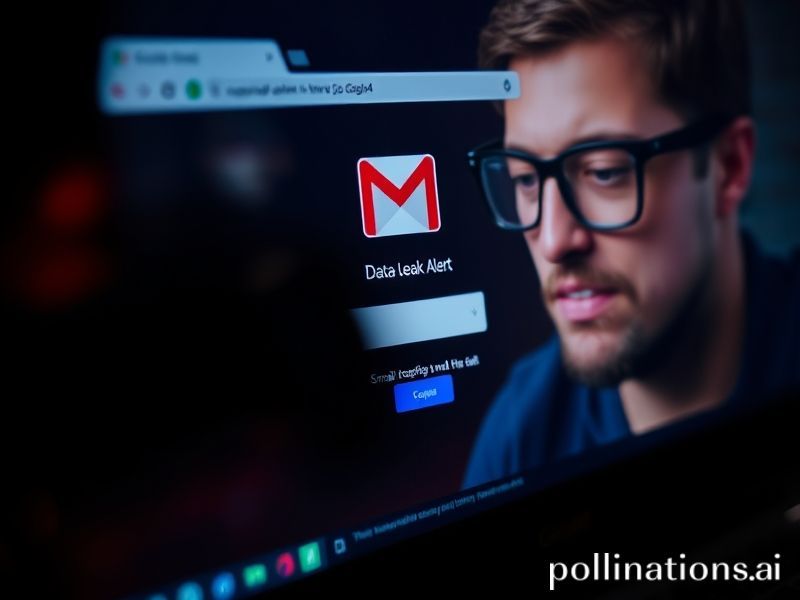Gmail’s Oopsie-Daisy: Why the World’s Freaking Out Over the Password Leak
# **Gmail’s Oopsie-Daisy: Why the World’s Freaking Out Over the Password Leak**
In a world where our inboxes are basically our digital brains, the news that a whopping 5 million Gmail passwords have been exposed is enough to make anyone’s stomach do a backflip. But why is this particular data leak trending globally, and what does it mean for the average internet user? Let’s dive in, shall we?
## **The Leak That Stole the Show**
First, let’s set the scene. A database containing 5 million Gmail usernames and passwords was found floating around the dark web, courtesy of a shady group called *ShinyHunters*. The passwords were encrypted (phew!), but let’s be real—if you’re using “password123” or “qwerty,” you’re basically handing over the keys to your digital kingdom.
So, why is this leak making headlines worldwide? Well, for starters, Gmail is the most widely used email service on the planet. It’s where we sign up for everything from online shopping to dating apps, and where we store sensitive information like bank details and personal photos. If hackers get their hands on your Gmail password, they’ve basically got the master key to your entire digital life.
## **Cultural Context: The Age of Data Leaks**
We live in an era where data leaks are almost as common as cat videos on Instagram. From Facebook’s Cambridge Analytica scandal to the recent Twitter hack, it feels like every few months, another tech giant is caught with its digital pants down. But why do these leaks keep happening?
Part of the problem is that we, as users, are often our own worst enemies. We reuse passwords, ignore two-factor authentication, and click on sketchy links like it’s our job. Meanwhile, companies like Google are constantly playing catch-up, trying to balance user convenience with security.
But here’s the thing: data leaks aren’t just about inconvenience. They have real-world consequences. Identity theft, financial fraud, and even blackmail are all very real risks when your personal data falls into the wrong hands.
## **Social Impact: The Ripple Effect**
The ripple effect of this leak is already being felt. People are scrambling to change their passwords, security experts are shouting from the rooftops about the importance of strong, unique passwords, and tech companies are scrambling to reassure users that they’ve got everything under control.
But beyond the immediate panic, this leak serves as a wake-up call. It’s a reminder that our digital lives are fragile, and that we need to take security seriously. It’s also a reminder that companies like Google, no matter how big or powerful, aren’t immune to breaches.
## **Why This Topic Is Significant**
So, why should you care? Well, for starters, if you’re one of the 5 million affected users, you’ve got some serious password updating to do. But even if you’re not directly impacted, this leak is a stark reminder that none of us are truly safe online.
It’s also a reminder that the internet is a shared space, and that our actions (or inactions) can have far-reaching consequences. Whether it’s using a password manager, enabling two-factor authentication, or just being more mindful of the links we click, we all have a role to play in keeping our digital lives secure.
## **Conclusion: Stay Woke, Stay Secure**
In the end, the Gmail password leak is more than just a headline—it’s a wake-up call. It’s a reminder that in an age where our lives are increasingly lived online, security can’t be an afterthought. It’s got to be a priority.
So, what can you do? Start by changing your passwords (and make them strong, okay?). Enable two-factor authentication. And for the love of all that is holy, stop reusing passwords like it’s a game of digital Russian roulette.
Stay woke, stay secure, and remember: the internet might be a wild place, but that doesn’t mean you have to be reckless.
—







